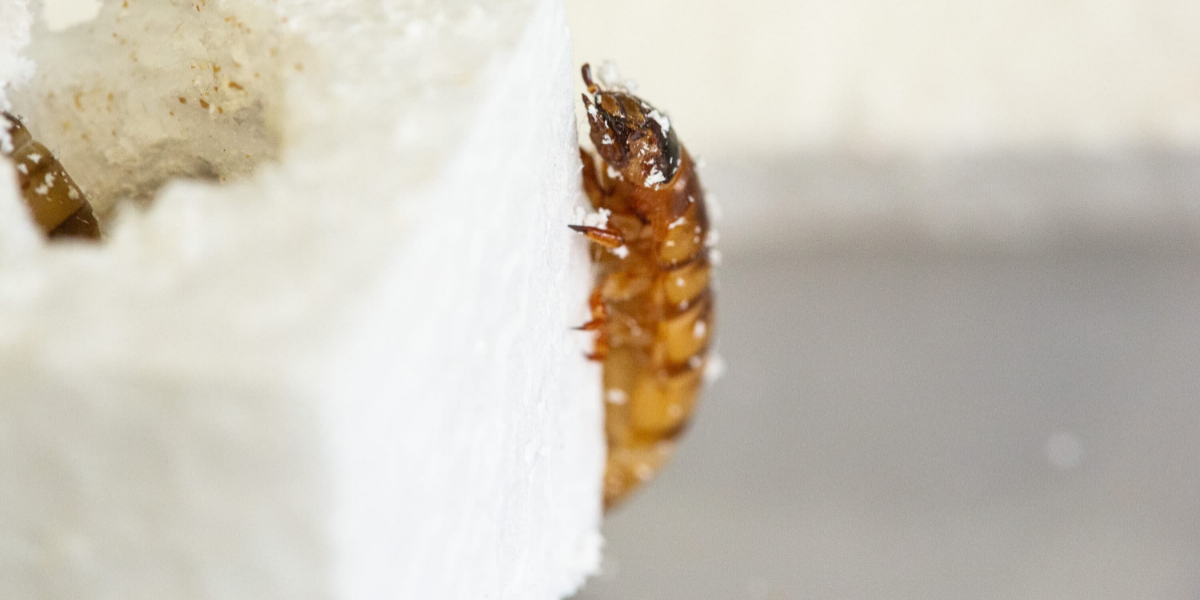- Australian scientists have discovered that Zophabas morio, commonly known as a super worm, can survive on a polystyrene diet.
- They believe that beetle larvae absorb plastic through intestinal enzymes.
- This may be important for progress in recycling, says one study author. “
A type of plastic-friendly insect larvae could revolutionize recycling, say researchers.
Australian scientists have discovered that Zophabas morio, commonly known as a super worm, can survive on a polystyrene diet. They believe that beetle larvae absorb plastic through intestinal enzymes.
This may be important for progress in recycling, says one study author. “Superworms are like little recycling plants that grind polystyrene in your mouth and give it to your gut bacteria,” said Dr. Chris Rinke.
For three weeks, the University of Queensland team fed three groups of superworms on different diets. The party that ate polystyrene was harder.
The group found that several enzymes in the worm’s gut broke down polystyrene and styrene. Both are common in shipping containers and other items such as insulation and car parts.
However, this study will not lead to large-scale earthworm farms that will double as processing plants. Instead, they hope to determine which enzymes are effective for a wide release for processing.
Read more: Semi-transparent Brazilian worm with clear internal system
A study published in Microbial Genomics shows that plastics are mechanically broken down before being processed with enzymes. “The decomposition products of this reaction can be used by other microorganisms to make high-value compounds, such as bioplastics,” said Dr. Rinke.
Studies have shown that some species of beetle larvae can consume polystyrene. But Colin Jackson, a researcher at the Australian National University who was not involved in the study, said the study went a step further.
Read more: Mysterious thread-like worms that wiggle through snow
Professor Jackson told the Australian Broadcasting Corporation: “This study is very useful for understanding how the intestinal bacteria [superworms] are doing at the molecular level.” “It’s important to translate and use this approach to recycling.”
Internationally, other researchers have been able to decompose plastics using bacteria and fungi.
However, some wonder if such methods are commercially viable. “Scaling and translating these studies has always been a difficult task in the plastics industry, which has grown with savings that can produce massive quantities and cheap pure plastics,” said Professor Jackson.

















